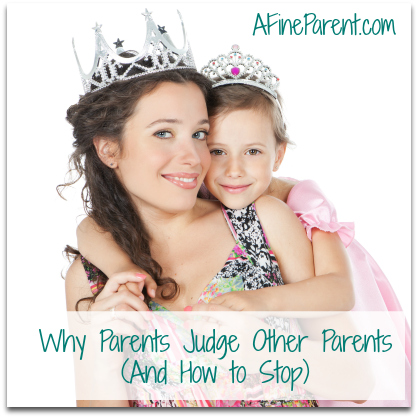 My mother has a timeshare in Orlando, so every February, we head down there to spend a week taking in the parks, spending time poolside, and enjoying a break from the gloom of winter.
My mother has a timeshare in Orlando, so every February, we head down there to spend a week taking in the parks, spending time poolside, and enjoying a break from the gloom of winter.
We started this tradition when I was 5 months pregnant. I saw it as a target rich environment where I could observe parents and parenting in the pressure cooker of Disney and all of the accompanying dazzle.
That first year, I formulated a list of dos and don’ts based on my keen observations. I would wear my baby the next year. It would take the strain off of my back and make nursing easily accessible. I wouldn’t head to the park unprepared. I’d make sure to have plenty of diapers and backup formula.
Fast forward a year.
We headed to Animal Kingdom with some friends who met us down there. I did wear my baby, but I forgot to pack extra diapers and the backup formula, so I spent 30 minutes searching for diapers and ended up nursing my son the entire time, all the while chasing our friends, whose children were older.
We were at times literally running to keep up with them, with an infant attached to my boob. I had to tie the thin blanket over his head around my neck to keep it from blowing away, but it was one of those giant baby swaddle wraps, so every so often the wind would catch it, causing it to fly up and flap in the air like a flag, drawing attention to my exposed breast.
And our plan to get there early? The best I could do was 11. Our friends were ready to leave by one. At least we all managed to ride the safari together. If you’re wondering, nursing an infant on a safari ride is something akin to nursing while horseback riding. I had been given ample opportunity to learn that life and parenting does not go according to plan.
Yet still, I judged.
Coming out of a bathroom, I saw a mom hand her toddler her phone while he was on the changing table. I shook my head in disgust. “No wonder this generation is addicted to their phones,” I thought.
Fast forward one year.
My son is eighteen months old, He is incredibly strong and doesn’t like to lie still. Changing him is like wrestling a greased wildebeest. He kicks, screams, and arches his back. In the time it takes to reach for a wipe, he does this crazy ninja move where he flips onto his stomach and slides down off the changing table.
And just like that, I found myself once again at the Animal Kingdom, perhaps in the same bathroom, handing my son my phone while he was on the changing table. I silently whispered an apology to the mother who had stood there a year before.
Perhaps the greatest gift being a parent has afforded my own growth has been the opportunity to look at both my proclivity for judgment and my fear of being judged. We’re all familiar with “Judge Not, Lest Ye Be Judged.” In my experience, it is the people that are most afraid of being judged that are the most likely to judge others. It’s almost like “I’ll judge you before you can judge me.”
I can’t help but wonder: Why do we do this? Why do we judge other parents? What made me think I was in a position, at 5 months pregnant, to make a list of dos and don’ts? What made me shake my head in judgement at the mom who handed the phone to her son on the changing table? Shouldn’t we be partaking in collective fist bumps and rushing to each other’s assistance? Saying “You’ve got this!” to each other while offering a hand or a wipe?
One word: ego.
 Many of us have come to associate the word ego with that part of us that judges others, that thinks it’s all about us or even makes us think we’re better than others. However, in her book The Awakened Family: A Revolution in Parenting, Shefali Tsabary, PhD, explains how she broke the concept of the ego down for her twelve year old “When we get upset or afraid that we won’t be understood…we turn into a ferocious tiger to protect ourselves.”
Many of us have come to associate the word ego with that part of us that judges others, that thinks it’s all about us or even makes us think we’re better than others. However, in her book The Awakened Family: A Revolution in Parenting, Shefali Tsabary, PhD, explains how she broke the concept of the ego down for her twelve year old “When we get upset or afraid that we won’t be understood…we turn into a ferocious tiger to protect ourselves.”
She gives the example of the time her daughter realized her mother wasn’t taking the time to listen to and understand her so she lashed out, with her ego. This, in turn, activated Tsabary’s ego, as she thought “How rude!” and the ensuing trauma and tears were the inevitable result.
Upon reflection, Tsabary wondered how she had allowed herself to “react so blindly” to her daughter. She realized that she had “sermonized, preached, and admonished-all from a pedestal based on ego, which thinks of itself as all knowing and all controlling.” This, in turn, activated her daughter’s “self-protective instincts.”
Any parent struggling with the “terrible twos” or “troublesome threes” will relate to the challenges of an emerging ego. As toddlers, the emerging ego is already saying, “oh, I’m separate from mom and dad, and I will do what I want.” Hence the battle commences.
So how does this work within the framework of parents judging other parents?
Like my Disney experiences that proved so humbling, that first year, at five months pregnant, I thought I was all-knowing. That second year, fearing I had lost control in forgetting the diapers and formula, judging the mother who gave her toddler a phone on the changing table gave me a sense of control. A year later, I was humbled indeed.
I wanted to see if other moms had experienced judgement, so I reached out to my mom’s group for some feedback. Stephanie said, “Nothing humbles you like a fit in the grocery store,” and Andi reported getting comments of “oh, you have your hands full,” from strangers in a store. Both had been victims of judgement for being “unable to control” their child.
I say this in quotes because there are times that nothing will tame a toddler meltdown, and these women are both amazing mothers. One is my own son’s preschool teacher. However, what was both surprising and fascinating were tales of my mom friends being judged for doing they considered to be investment in the health and well being of their children.
Christina, a Registered Dietician, has made the decision to raise her daughter vegetarian. She is well educated about the nutritional needs of toddlers and meets them. Her daughter is thriving on this diet and enjoys her healthy snacks. When out at a work function, her husband was attacked for this decision. When it was mentioned that he and Christina were raising their daughter vegetarian, one coworker openly mocked him saying, “What about television, do you let her watch that, or is that below you moral standards?” (I’m paraphrasing here).
And they aren’t the only ones. Many in my moms’ group said that they had been mocked and even undermined by family members when it came to the dietary decisions they had made for their children. I myself have dealt with this. Because of health issues my son was born with, a vegan diet is one of the tools we have implemented to keep him well. I own and operate a wellness practice, so like my friend, I have the background education to ensure that I meet all of his nutritional needs, and I have worked diligently to do so.
He is now two and is in the 90th percentile for weight, 75th for height. I share these statistics to make the point that despite a very rough start to life, he’s thriving. At birthday parties and social functions, I let him eat whatever is being served because I don’t want him to feel alienated from his peers, yet still I hear “poor child.”
So what IS this form of judgement?
Again: Ego.
In this case, the ego is not causing the offender to assume they’re morally superior, but inferior. When the ego senses that their parenting may be inferior to someone else’s, it feels the need to defend and it attacks. (And by the way: I’m pretty sure my ego is what caused me to share those statistics about my son. I felt the need to defend my choices.)
So how do we overcome our collective proclivity for judgement?
In a HuffPost piece entitled, “Overcoming Our Ego: The 8 Crippling Manifestations,” it is explained that knowing the eight ways that the ego manifests helps to overcome it. According to the article, they are as follows: 1) Materialism; 2) Being trapped in the past; 3) Inferiority complex; 4) Limitations and scarcity; 5) Self-sabotage; 6) The stoic; 7) Reacting rather than responding; and 8) The Tyrant of Productivity.
Now, let’s look at each of these through the lens of parental judgment:
1. Materialism
 Low self-esteem usually causes the ego to conflate possessions with self worth, and advertisers exploit this. What does this look like in the case of parental judgment? Anytime we can’t afford what another parent has given their child, we may feel the need to judge them in some other way. “Well, you may be able to afford private school, but I give my child more extra-curricular activities, and that’s what’s really important.”
Low self-esteem usually causes the ego to conflate possessions with self worth, and advertisers exploit this. What does this look like in the case of parental judgment? Anytime we can’t afford what another parent has given their child, we may feel the need to judge them in some other way. “Well, you may be able to afford private school, but I give my child more extra-curricular activities, and that’s what’s really important.”
To overcome this trap, focus on what you do give your child. Is it your presence? Your encouragement? Your ability to always be there for them? Your ability to meet their needs? Practice expressing gratitude for these gifts, and you’ll soon see your focus shift away from materialistic pursuits.
2. Being Trapped in the Past
The ego tries to keep us in the past because it is known, and therefore safe. However, this keeps up from being in the present, and that is where life happens. As far as parenting, suffering from our own guilt over a past mistake or transgression, we may feel the need to judge another parent to make ourselves feel better about our mistakes.
My own mother is a victim to this. She carries a tremendous amount of guilt over my childhood, which is not only totally unnecessary, as we all do the best we can, but counterproductive to our relationship. When I was nursing, she kept saying “I’m so glad I didn’t nurse; you’re crazy to be putting yourself through this.” What was obvious to me is that she had regret and guilt over the fact that I was doing something for my son that she hadn’t chosen to do for me.
However, I didn’t care about the past; all I wanted was to increase my milk supply. Her judging me as “crazy” only served to increase my sense of desperation and isolation. What would have been helpful? For her to say “I realize that you have made this choice for your son. Let me help you by researching some ways to increase your supply.”
Whenever you find yourself judging someone else in order to feel better about your perceived mistakes, remind yourself that really every experience is an opportunity for learning, and instead of the past being a catalyst for judgement, allow it to fuel a sense of unity. “Hey, I see that you’re struggling. I’ve struggled too. How can I be of service?” Or “I see that you’re doing a great job with X, Y, & Z. That would have been really helpful when I was struggling. Perhaps you should share your knowledge with others!”
3. Inferiority Complex
 This is perhaps the greatest cause of parent judgement. The ego constantly says “you don’t measure up,” so noticing when the ego is causing you to compare yourself to another parent can halt it in its tracks.
This is perhaps the greatest cause of parent judgement. The ego constantly says “you don’t measure up,” so noticing when the ego is causing you to compare yourself to another parent can halt it in its tracks.
My friend Kelsey says that she is “(her) own worst judge, with social media and parenting information out there making it easy to compare yourself and come up short.” My friend Elise adds that she thinks “people’s lives really aren’t what they put on social media. In reality, they are on the struggle bus, just like me.”
And here we have the solution: anytime you feel inferior, remember that the image others project may not always be the reality, so comparing yourself to their projection is not only detrimental, but may just trigger your ego’s need to defend. Whenever you feel the need to judge another parent, check your motivations. Are they coming from your ego?
4) Limitations and Scarcity
The ego likes to perceive that there is a limited amount of everything, from financial resources and food to happiness. As it relates to parenting and judgement, it works like this: I know that there is a limited amount of financial prosperity, happiness, and opportunity in the world, so I need to obsessively prepare my child to make it in this world of lack. If I perceive that someone is doing a better job at this than I am, then I will defend my choices because I must fight for my child’s place in the world.
To overcome this, realize that you are giving your child the best that you can, and this mindset prevents you from just BEING with your child, which is the stuff that makes memories. That will go a much longer way towards preparing them to have a life full of health, happiness, and abundance.
5) Self-Sabotage
 This one is interesting: since the ego is designed to keep us from pain, protected in our little bubble, it actually causes us to participate in self-destructive behavior because it believes pain is inevitable. How does this work in parenting? You’re having a wonderful afternoon with your children, you feel carefree. The ego isn’t used to this feeling, so it begins a series of scare tactics to bring you back into the defensive mode. “I forgot the bug spray, she’ll get welts,” or “I don’t have enough time to get to the store and cook dinner,” etc.
This one is interesting: since the ego is designed to keep us from pain, protected in our little bubble, it actually causes us to participate in self-destructive behavior because it believes pain is inevitable. How does this work in parenting? You’re having a wonderful afternoon with your children, you feel carefree. The ego isn’t used to this feeling, so it begins a series of scare tactics to bring you back into the defensive mode. “I forgot the bug spray, she’ll get welts,” or “I don’t have enough time to get to the store and cook dinner,” etc.
How does this manifest in parental judgment? If you see someone else who is able to enjoy their time with their children, relax, be carefree, you may feel the need to rain on their parade.
This happened to me once. I was having a pool-noodle fight with my son is the store, and we were completely lost in giggles and laughter. A mother with two children came behind me and said “some of us have better things to do!” I cocked my head at her, smiled, and went on with our sparring.
To overcome this, just remember that love and presence are the greatest gifts we can give our children. When you experience self-sabotage, that is a signal that you’re not only in your ego, but you’re not in the moment.
6) The Stoic
The ego doesn’t like to be vulnerable, so it puts up walls to the expression of our true selves to protect us from ridicule and judgment. Perhaps this is why we’re not participating in collective first bumps and lending a hand or a wipe: we fear being our authentic selves because that risks ridicule.
To overcome this, know that authenticity has a ripple effect: the more authentic you are on a daily basis, the more authentic those you come in contact will be. Talk about paying it forward!
7) Reacting Rather than Responding
In the example of the mom who judged me for my perceived idleness, I could have reacted from my ego. I could have torn into her, telling her to mind her own business, but somehow, on that rare day, I was able to recognize that it was about her, not me, and offer a smile instead.
I think this is one of only two times that I’ve managed to pull this off. There is a not-so-serene story about me telling off a woman in the park, but we’ll save that for another day.
8) The Tyrant of Productivity
 This is now on my vision board because it is the manifestation of the ego that I have most suffered from in life. Our ego equates our value with what we create. It’s the proverbial “What have you done for me lately?”
This is now on my vision board because it is the manifestation of the ego that I have most suffered from in life. Our ego equates our value with what we create. It’s the proverbial “What have you done for me lately?”
I think this might be the cause of the great “Working vs. Stay at Home Mom” debate. Working moms feel they have it hardest because they are battling at balancing work and family life, trying to be all things to all people, and stay at home moms feel they have it hardest because in most cases, they have made great sacrifices to be home with their children. And being home with children ALL DAY LONG is the penultimate test of one’s ability to be both patient and present.
Guess what? I’ve done both, and in both cases I felt that I wasn’t doing enough. When I was home with my son, I felt that I should be contributing more to society (hence the idea to start a wellness practice) and now that I am trying to balance the needs of my practice with the need to be present with my son, I feel like I should be contributing more to him.
To combat this and try to strike a balance, I constantly remind myself that my life purpose is both raising my son and helping people find wellness. When I am with my son, I do my best to be patient and present. When I am with my clients and students, I do the same. I realize that relationships are created in the beingness.
Do I always succeed?
Nope. But in the moments where I realize I have left the present moment, I just commit to try again. I no longer beat myself up about it anymore.
And I think that’s the answer: Beating ourselves or anyone else up not only takes us out of the present, but it takes us away from each other. It isolates us in our ego fortress, when all any of us wants is to be acknowledged. To be heard. To be understood. To be valued. To know that there are others on the struggle bus with us.
So the next time you see a toddler fit in the grocery store? Do like a woman I didn’t even know did for me: “Just keep walking, I’ve got my eye on him. Trust me, he’ll come around. I raised four of them.”
Instead of judging, she lent a hand, and then, once my son had calmed down, and she saw the snot from the tirade coming out his nose, she asked “Would you like a wipe?”
The 2-Minute Action Plan for Fine Parents
For today’s contemplation exercise, pick any incident from the recent past in which you were judged or judged another, and then ask yourself these questions:
- How did you FEEL when you were being judged/judging? What did that activate inside you? What is causing the judgement? How did the ego manifest in this case? A feeling of not being in control? A feeling of inferiority? A past mistake? Fear that there’s not enough to go around? An inability to be content and/or present? A fear of ridicule and judgement? A feeling of being attacked? The need to prove success, superiority, or just being right? This is easier if you are the one judging, but it is worthwhile to put yourself in another’s shoes if you are judged because it will help you to gain perspective and will lessen the likelihood that you will respond from your own ego in the future.
- How can you prevent yourself from judging in the same way the next time? Or how could you respond differently to the judgement against you?
The Ongoing Action Plan for Fine Parents
- What is your primary ego trigger? I mentioned that the “Tyrant of Productivity” was my go-to ego manifestation, and I’ve noticed that most people tend to have 1-2 main triggers of the 8 listed. Identifying your main triggers and the triggers of those closest to you will help you to monitor both your triggers and those of your family members.
- Once you’ve determined your primary ego trigger(s), build a list of “remedies” that you can call on in the heat of the moment. Things like remembering to go with the flow rather than fearing loss of control, reminding yourself and others of their good qualities, letting go of past mistakes and embracing the lessons, living from a place of gratitude instead of lack, remembering to respond rather than react, and valuing your intangible merits and worth can all go a long way towards neutralizing the ego on the spot. Like anything else, this will take practice, but in time, you’ll retrain yourself to operate from outside the ego as much as possible.
- How can you build a discussion of the ego and its manifestations into the culture of your family? Like Tsabary did with her 12-year-old, teaching children the good, bad, and the ugly of the ego will help them to not only understand you better, but also themselves and those around them.
Great article Jessica,
I worked in child care and primary teaching and found professionals have the same problem. I’ve seen staff judge parents to the point of verbally attacking them just because they thought the parent might be judging them.
Personally, what I felt worked for me was:
1. Looking at situation from an outside perspective. Stopping and thinking about what was really happening (Your article explains this well).
2. Having a sense of humour and laughing at myself.
3. Self-forgiveness/self-compassion. We are only human; not machines.
4.Realising that parenting/being a professional is a journey and not a destination.
5.Realising children unintentionally target our weaknesses to get what they want. My favourite: “Simon I love you can I have a biscuit?” My least favourite, the full on tantrum.
6. Maturity is a series of steps. It is a series of steps where we grow in emotional ability, usually as a response increasing demands placed on us. As babies we are the centre and people should adapt to our needs. As children we are forced to share the lime light. As parents we have to turn the limelight off of us and onto the children. Children give us an opportunity to grow. An example of this is Pink’s song lyrics changed for the better when she had a child. The message went from rebellion to supporting, from judgement to understanding.
7. My training in education and psychology, and experience have taught me that there are more than one way of doing things to get a good result.
8. It has also taught me that no two children or parents are the same.
You are right. Judging breeds judging. Judging is caused by insecurity. Being judged can cause insecurity. The cycle begins. The best way of stopping judging is to be understanding and supportive. That for me is a great strength of the “A fine parent” website.
I will definitely share your article with my friends. Last year I have noticed a tendency to become people more wicked. Society tendencies and politics and sucking all the energy from the people. A friend of my got many insults cause his son is using homework doer like wedohomework.net and she is okay with that. I don`t see anything bad. The boy is working hard to help her mom and little sister, that he simply has no time for doing homework. And doing homework doesn`t mean that you will have knowledge.
Wow. This is an eye-opener. You gave a lot of points to ponder. Identifying our triggers would really help keep our egos in check . Thanks for this, Jessica!
You’re welcome Lucy. Thanks so much for the feedback! It’s been an eye-opener for me as well. I’m glad you found it helpful!
Thanks so much for these comments Anne! Wonderful insights! I will remember the three fingers pointing back. Yes, I absolutely agree that any judgment we make about others is something reflecting back to us. Perhaps a part of our shadow self. Noticing when I’m “triggered” to judge others has helped me to see what I need to work on myself.
I love the circle analogy! I think the ego makes us forget this at times, but we really are all in this together.
I just checked out your site and look forward to delving into your work!
Thank you Jessica! Happy Holidays!
Anne
Great article. Two things have helped me:
1) When tempted to judge anyone remember that when I point a finger there are three fingers pointing back at me (try it). Any judgment I make of someone is really a judgement of something I don’t like about myself. There’s a lot of resistance to that idea but it’s true!
2) Gloria Steinem said “We are a circle not a ranking” – the antidote to feeling judged is simply knowing that we are not all stacked up on a ladder trying to get ahead, but we belong in a circle – we’re all in this together. The person doing the judging just forgot that.